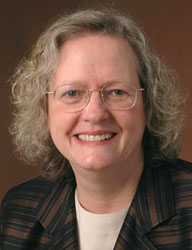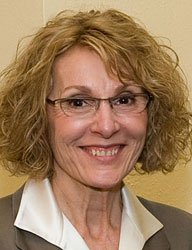Deans’ Message
These are exciting times at Purdue Engineering as we continue to grow the number of outstanding faculty as well as the number of highly accomplished students seeking degrees in our schools. And at the forefront of our efforts are collaborations inside and outside of the University.
Industry-funded research also is growing throughout Purdue Engineering. At the Maurice J. Zucrow Laboratories, Nicole Key, associate professor of mechanical engineering, and her team are testing compressor technologies for next-generation jet engines for Rolls-Royce — a collaboration that dates back to 2009. Not only will the research impact future engine design but it also will address fundamental questions related to complicated flow fields.
A core component of the College of Engineering’s Strategic Plan is our focus of talent and facilities on research that expands the boundaries of science and technology to address global challenges. The Innovation for International Development Lab (I2D Lab), under the Office of Global Engineering Programs, aims to foster a vibrant community of faculty, staff, and students to solve grand challenges related to energy access, health care, water and sanitation, humanitarian response, labor-saving innovation, and information and communication technologies for economic development. From quickly diagnosing infectious diseases in infants to bringing engineering skills to street children in Kenya and improving supply chain management systems to deliver desperately needed supplies to Syrian refugee camps, Purdue Engineering faculty are at the forefront of innovation.
Students in the Advanced Astrodynamics Concepts senior design course, AAE 450, have been part of an ongoing collaboration with Gemini and Apollo astronaut Buzz Aldrin. Fifty-one students produced a 1,068-page feasibility study based on Aldrin’s plan to create a new class of spacecraft that could enable humans to travel routinely in space and colonize Mars. Their research could influence future plans for Mars colonization by 2040.
The growing threat of terrorism drove the 2013 creation of the College of Engineering’s Preeminent Team on Energetic Materials — an interdisciplinary group of researchers who seek to advance the science and technology of explosives, propellants and pyrotechnics for defense and homeland security applications. Their findings are also influencing curriculum that is preparing graduates for careers not only in homeland security but also with pharmaceutical makers, microelectronics manufacturers, and even food companies.
And finally we would like to recognize six faculty members who received 2015 National Science Foundation Faculty Early Career Development Program awards. The NSF CAREER awards are offered to junior faculty who integrate cutting-edge research with teaching or community outreach programs. Their contributions will drive innovation, achievement, and growth across the University and differentiate Purdue as one of the true STEM capitals of higher education.
We are pleased to share these stories with you.

The John A. Edwardson Dean of Engineering
Ransburg Distinguished Professor of Electrical and Computer Engineering

Associate Dean of Engineering for Research
Professor of Agronomy, Civil, and Electrical and Computer Engineering
Chair of Excellence in Earth Observation
Discovery: Innovation@Purdue Engineering, is a Purdue College of Engineering publication that focuses on advances in research. The quarterly e-publication features recent research achievements in the College and highlights faculty and student research, including collaborations with international partners. Significant initiatives in engagement with industry and in translating research to practice will also be spotlighted.